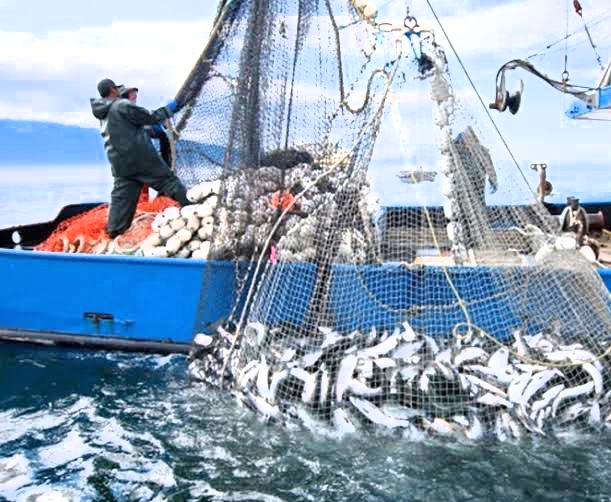
The President of the Nigerian Trawler Owners Association (NITOA), Mrs. Bennedette Okonkwo, has lamented the crippling state of the country’s fishing trawler industry, revealing that only about 150 trawlers remain operational, with many struggling to work at full capacity, due to soaring operational costs.
Okonkwo in a chat with our correspondent, warned that without urgent intervention, the industry could collapse under the weight of financial pressure, leaving Nigeria increasingly dependent on imported seafood.
Speaking on the challenges facing the sector, Mrs. Okonkwo highlighted the high cost of operations as one of the primary obstacles hindering trawler owners from operating efficiently.
“Everyone in the country is aware of what is going on. Our vessels operate 24/7 on diesel, and there is no alternate source of energy,” she said. The trawlers, which often remain at sea for extended periods, rely heavily on Automotive Gas Oil (AGO) to power both their engines and onboard systems, making the continuous use of diesel an unavoidable and costly burden.
According to her, the cost of fuel has pushed the industry to the brink of collapse. “Government support could come in the form of fuel subsidies, not just price reduction, but actual subsidies to help us operate. Otherwise, the industry is suffering, and we don’t know for how long we can continue,” she added.
The lack of an alternative energy source has left trawler operators with no option but to rely on expensive diesel, further exacerbating their financial challenges, she lamented.
Mrs. Okonkwo further revealed that the number of fishing trawlers operating in the country has significantly reduced over the years. She informed that currently, only around 150 trawlers are active, and even these are not working at full capacity owing to high cost of operations.
“Right now, we have about 150 trawlers operating, and even these are not working at full capacity,” she stressed.
She lamented that several companies have been forced to keep dock their vessels and unable to afford the costs of sailing out to sea. “Not all the companies can afford to operate at full capacity. Some of the vessels are still docked ashore, while others are struggling to manage limited operations,” she explained.
The NITOA President further explained that the reduction in fleet numbers and the inability to operate at full scale have created a gap in local fish production, making it difficult for Nigeria to meet its domestic demand.
She said this shortfall has in turn, increased the country’s reliance on fish imports.
She expressed that Nigeria’s increasing dependence on fish imports remains a significant concern for the industry, while noting that most of the country’s fishing trawlers are primarily licensed for shrimping, with fish being a by-catch rather than the main target.
This means that the country’s ability to meet its fish consumption needs through trawling alone is limited.
“First of all, in the trawling business, we are licensed for shrimping, where fish is a bycatch. We don’t have many vessels dedicated to fishing,” she said.
She added that despite this, Nigeria’s population continues to grow, and the demand for fish and seafood has outpaced local production while also stressing the need for aquaculture to be supported in order to meet the country’s fish consumption needs.
“Aquaculture should be supported so that they can also produce more fish for the country. From trawling alone, we can’t get enough fish for everybody, without robust support for aquaculture, Nigeria will continue to rely heavily on imported seafood to fill the gap left by the struggling trawler industry.”She explained.
Okonkwo urged the government to step in with supportive policies, particularly in the area of fuel subsidies lamenting that the high cost of AGO is currently the most significant challenge facing trawler operators, she said without intervention, many more vessels may be forced to remain docked, further reducing the country’s capacity for local fish production.
“We can’t say no to the importation of fish right now, but if the government supports us with subsidies and boosts aquaculture, we could gradually reduce our reliance on imports,” she stated.
In addition to subsidies, Okonkwo called for long-term strategies that include infrastructure development and better access to financing for operators in the trawling and aquaculture sectors.















